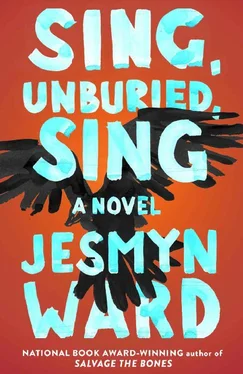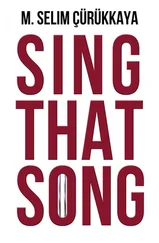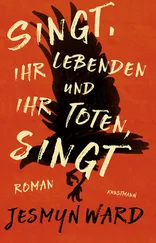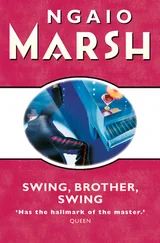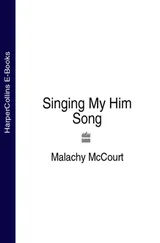Sing, Unburied, Sing: A Novel
Jesmyn Ward

Who are we looking for, who are we looking for?
It’s Equiano we’re looking for.
Has he gone to the stream? Let him come back.
Has he gone to the farm? Let him return.
It’s Equiano we’re looking for.
—Kwa chant about the disappearance of an African boy, Equiano
Running through the field, all I hear is laughter
’Cause the chains that kept us here can no longer capture
The heart of my folk. Foot on the throat of my oppressor
For all of them ropes. They tied a tree for my ancestors.
If limbs could talk, they’d cry for days.
—Big KRIT, from “God Bless America,” by Dizzy Wright
The memory is a living thing—it too is in transit. But during its moment, all that is remembered joins, and lives—the old and the young, the past and the present, the living and the dead.
—from
One Writer’s Beginnings , by Eudora Welty
The Gulf shines, dull as lead. The coast of Texas
glints like a metal rim. I have no home
as long as summer bubbling to its head
boils for that day when in the Lord God’s name
the coals of fire are heaped upon the head
of all whose gospel is the whip and flame,
age after age, the uninstructing dead.
—from “The Gulf,” by Derek Walcott
I like to think I know what death is. I like to think that it’s something I could look at straight. When Pop tell me he need my help and I see that black knife slid into the belt of his pants, I leave Mam sleep in her bed and my little sister Kayla sleep on a blanket on the floor, and I follow Pop out the house, try to keep my back straight, my shoulders even as a hanger; that’s how Pop walks. He weaves in and out of the trees, straight and slim and brown as a young pine tree. I try to look like this is normal and boring so Pop will think I’ve earned these thirteen years, so Pop will know I’m ready to pull what needs to be pulled, separate innards from muscle, organs from cavities. I want Pop to know I can get bloody. Today’s my birthday.
I grab the door so it don’t slam, ease it into the jamb. I don’t want Mam or Kayla to wake up with none of us in the house. Better for them to sleep. Better for Kayla to sleep, because on nights when Leonie’s out working, she wake up every hour, sit straight up in the bed, and scream. Better for Mam to sleep, because the chemo done dried her up and hollowed her out the way the sun and the air do water oaks. Pop spits in the dry red dirt, and the wind makes the trees wave. It’s cold. This winter is stubborn, won’t make way for spring. The chill stays like water in a bad-draining tub. I left my hoodie on the floor in Leonie’s room, where I sleep, and my T-shirt is thin, but I don’t rub my arms. If I let the cold goad me, I know when I see the goat, I’ll flinch or frown when Pop cuts the throat. And Pop, being Pop, will see.
“Better to leave the baby asleep,” Pop says.
Pop built our house himself, narrow in the front and long, close to the road so he could leave the rest of the property wooded. He put his pigpen and his goat yard and the chicken coop in small clearings in the trees. We have to walk past the pigpen to get to the goats. The dirt is black and muddy with shit, and ever since Pop whipped me when I was six for running around the pen with no shoes on, I’ve never been barefoot out here again. You could get worms , Pop had said. Later that night, he told me stories about him and his sisters and brothers when they were young, playing barefoot because all they had was one pair of shoes each and them for church. They all got worms, and when they used the outhouse, they pulled worms out of their butts. I don’t tell Pop, but that was more effective than the whipping.
Pop picks the unlucky goat, ties a rope around its head like a noose, leads it out the pen. The others bleat and rush him, butting his legs, licking his pants.
“Get! Get!” Pop says, and kicks them away. I think the goats understand each other; I can see it in the stubborn butts of their heads, in the way they bite Pop’s pants and yank. I think they know what that loose rope tied around the goat’s neck means. The white goat with black splashes on his fur dances from side to side, resisting, like he catches a whiff of what he is walking toward. Pop pulls him past the pigs, who rush the fence and grunt at Pop, wanting food, and down the trail toward the shed, which is closer to the house. Leaves slap my shoulders, and they scratch me dry, leaving thin white lines scrawled on my arms.
“Why you ain’t got more of this cleared out, Pop?”
“Ain’t enough space,” Pop says. “And don’t nobody need to see what I got back here.”
“You can hear the animals up front. From the road.”
“And if anybody come back here trying to mess with my animals, I can hear them coming through these trees.”
“You think any of the animals would let themselves get took?”
“No. Goats is mean and pigs is smarter than you think. And they vicious, too. One of them pigs’ll take a bite out of anybody they ain’t used to eating from.”
Pop and I enter the shed. Pop ties the goat to a post he’s driven into the floor, and it barks at him.
“Who you know got all they animals out in the open?” Pop says. And Pop is right. Nobody in Bois has their animals out in the open in fields, or in the front of their property.
The goat shakes its head from side to side, pulls back. Tries to shrug the rope. Pop straddles it, puts his arm under the jaw.
“The big Joseph,” I say. I want to look out the shed when I say it, over my shoulder at the cold, bright green day, but I make myself stare at Pop, at the goat with its neck being raised to die. Pop snorts. I hadn’t wanted to say his name. Big Joseph is my White grandpa, Pop my Black one. I’ve lived with Pop since I was born; I’ve seen my White grandpa twice. Big Joseph is round and tall and looks nothing like Pop. He don’t even look like Michael, my father, who is lean and smudged with tattoos. He picked them up like souvenirs from wannabe artists in Bois and out on the water when he worked offshore and in prison.
“Well, there you go,” Pop says.
Pop wrestles the goat like it’s a man, and the goat’s knees buckle. It falls face forward in the dirt, turns its head to the side so it’s looking up at me with its cheek rubbing the dusty earth and bloody floor of the shed. It shows me its soft eye, but I don’t look away, don’t blink. Pop slits. The goat makes a sound of surprise, a bleat swallowed by a gurgle, and then there’s blood and mud everywhere. The goat’s legs go rubbery and loose, and Pop isn’t struggling anymore. All at once, he stands up and ties a rope around the goat’s ankles, lifting the body to a hook hanging from the rafters. That eye: still wet. Looking at me like I was the one who cut its neck, like I was the one bleeding it out, turning its whole face red with blood.
“You ready?” Pop asks. He glances at me then, quickly, but his look ain’t soft. I nod. I’m frowning, my face drawn tight. I try to relax as Pop cuts the goat along the legs, giving the goat pant seams, shirt seams, lines all over.
“Grab this here,” Pop says. He points at a line on the goat’s stomach, so I dig my fingers in and grab. It’s still warm, and it’s wet. Don’t slip , I say to myself. Don’t slip.
“Pull,” Pop says.
Читать дальше
